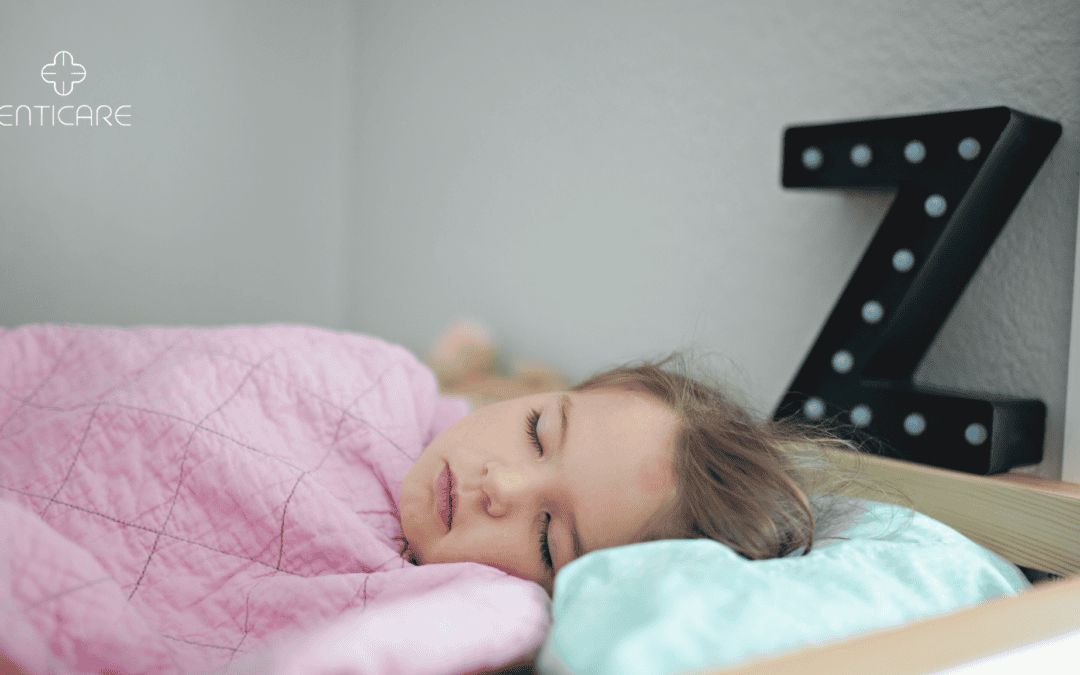Many parents worry about their child’s sleep when they hear their child snore at night. Snoring in children can range from harmless to a sign of a serious sleep disorder. Understanding when snoring is a cause for concern and whether your child might need CPAP (Continuous Positive Airway Pressure) therapy is crucial for ensuring their health and well-being.
Recognizing the Importance of Sleep Health
Understanding Snoring in Children
Snoring occurs when the flow of air through the mouth and the ear nose and throat is partially blocked during sleep. While occasional snoring can be normal, regular and loud snoring may indicate underlying health issues by causing interruptions in a child’s breathing. In children, persistent snoring could signal sleep-disordered breathing or obstructive sleep apnea (OSA).
The Impact of Poor Sleep on Children
Poor sleep affects children’s physical, emotional, and cognitive development. Restless sleep is a possible sign of sleep apnea in children, which may include pauses in breathing and gasping for air. Chronic snoring and sleep apnea can lead to daytime fatigue, difficulty concentrating, and behavioral problems. Ensuring your child gets quality sleep is essential for their overall health and academic performance.
Early Intervention
Pediatric obstructive sleep and disorders can prevent long-term complications. Recognizing the signs of sleep apnea and addressing them promptly ensures your child receives the necessary treatment. This can significantly improve their quality of life and development.
Identifying the Causes and Risks
Common Causes of Snoring
Several factors can cause snoring in children. These include:
- Enlarged tonsils or adenoids
- Allergies or asthma
- Obesity
- Nasal congestion or deviated septum
Understanding the cause of your child’s snoring helps in determining the appropriate treatment and sleep medicine.
Risks of Untreated Pediatric Obstructive Sleep Apnea
Pediatric obstructive sleep apnea can lead to serious health problems in children. These include:
- Growth and developmental delays
- Cardiovascular issues
- Learning and behavioral difficulties
- Increased risk of obesity
Recognizing these risks underscores the importance of seeking medical advice if your child snores regularly.
When Snoring Indicates Sleep Apnea
Not all snoring signifies sleep apnea, but certain signs suggest a need for further evaluation. These signs include:
- Loud and frequent snoring
- Pauses in breathing during sleep
- Gasping or choking sounds at night
- Excessive daytime sleepiness
- Difficulty waking up in the morning
If your child’s sleep apnea also exhibits these symptoms, a sleep study might be necessary to diagnose sleep apnea.
Exploring Treatment Options
Diagnosing Sleep Apnea with an Overnight Sleep Study
Obstructive sleep apnea diagnosed through a sleep study, or polysomnography, is the most effective way to identify this condition. This test monitors your child’s sleep stages, breathing patterns, heart rate, and oxygen levels. The results of the overnight sleep study help determine the severity of the sleep disorder and guide treatment options.
Non-CPAP Treatments
Obstructive sleep apnea treated with various methods might be recommended before considering CPAP therapy. These include:
- Tonsillectomy or adenoidectomy: Removing enlarged tonsils or adenoids can often resolve sleep apnea in children.
- Weight management: For overweight children, losing weight can reduce the severity of sleep apnea.
- Allergy treatment: Managing allergies with medication or environmental changes can alleviate snoring caused by nasal congestion.
CPAP Therapy for Children
Positive airway pressure CPAP therapy involves using a machine to deliver a continuous stream of air through a mask, keeping the airways open during sleep. This therapy is highly effective for children with moderate to severe sleep apnea. Benefits of CPAP therapy include:
- Improved sleep quality
- Reduced daytime fatigue and behavioral issues
- Enhanced overall health and development
Taking the Next Steps
Consulting a Sleep Specialist
If your child snores regularly and exhibits signs of sleep apnea or other sleep disorders, consult a sleep specialist. They can evaluate your child’s symptoms, conduct a sleep study, and recommend the best treatment plan. Early diagnosis and treatment central sleep apnea can prevent complications and improve your child’s quality of life.
Implementing Lifestyle Changes
Along with medical treatment, certain lifestyle changes can support better sleep health. These include:
- Establishing a regular sleep schedule
- Creating a sleep-friendly environment
- Encouraging physical activity and healthy eating habits
Monitoring and Follow-Up
Regular follow-up with your healthcare provider ensures the chosen treatment remains effective. Adjustments to the treatment plan might be necessary based on your child’s progress and changing needs. Continuous monitoring helps maintain optimal sleep health.
Ensuring Your Child’s Sleep Health and Well-Being
Snoring in children can be more than just a nuisance. It might indicate a serious, pediatric sleep apnea disorder that requires medical attention. Understanding the causes, risks, and treatment options empowers you to make informed decisions for your child’s health. Addressing sleep apnea early with appropriate treatment, such as CPAP therapy, can significantly improve your child’s quality of life.
For expert advice and personalized treatment plans, schedule an appointment with our specialists at Enticare. Our team is dedicated to helping your child achieve better sleep and overall health.

